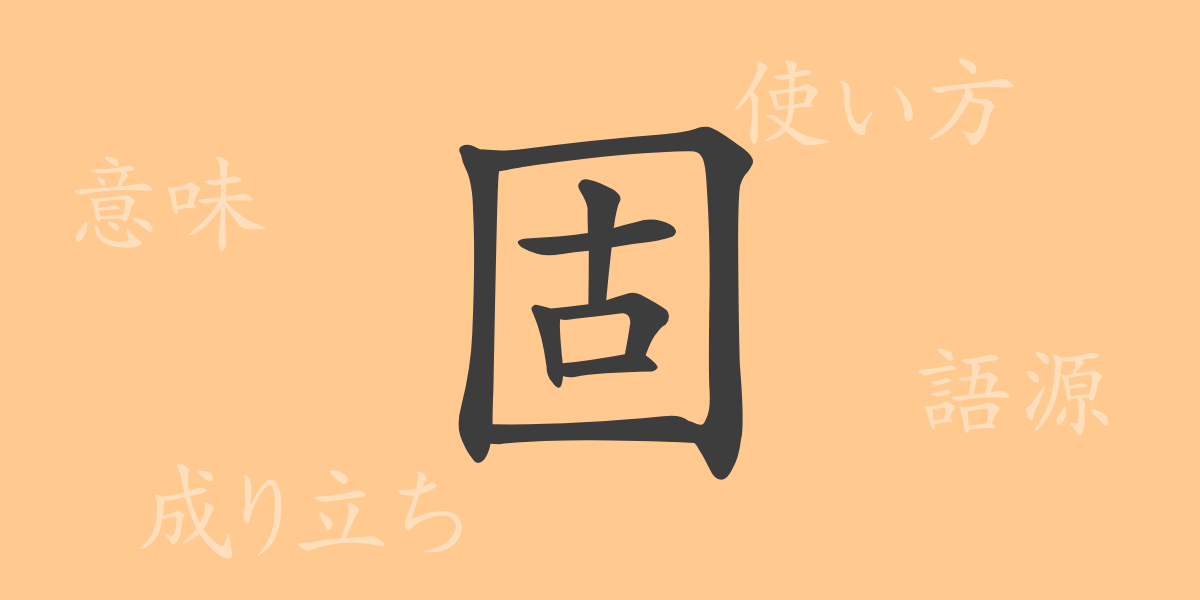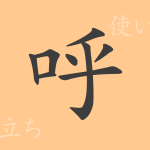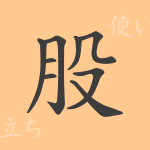The charm of the Japanese language lies in its rich expressions. The depth of meaning contained in a single kanji character adds layers to the language. This time, we focus on the common kanji “固” (かた, kata), exploring its origins, meanings, uses, and the idioms and phrases it forms. As we delve into the history and examples of this kanji, let’s uncover the depth of the world of kanji together.
Origins of 固 (Etymology)
The kanji “固” (かた, kata) traces its origins to ancient Chinese oracle bone script. Originally, it was an ideogram depicting walls or fortresses made of solidified earth. Over time, the shape evolved into the current form “固,” symbolizing the concept of something firmly set and unchanging. Thus, it came to mean “solid,” “firm,” and “unwavering.”
Meanings and Uses of 固
The kanji “固” (かた, kata) means “hard,” “firm,” and “unchanging.” It is used to describe unyielding beliefs or rigid ideas, as seen in phrases like “固い信念” (かたいしんねん, katai shinnen – firm belief) and “固定観念” (こていかんねん, kotei kannen – fixed idea). It functions as an adjective, noun, and verb. For example, “固める” (かためる, katameru – to harden) is a verb, “固体” (こたい, kotai – solid) is a noun, and “固い約束” (かたいやくそく, katai yakusoku – firm promise) is an adjective phrase.
Readings, Stroke Count, and Radical of 固
Here are the basic details of the kanji “固” (かた, kata):
- Readings: The On’yomi (音読み) is “コ” (こ), and the Kun’yomi (訓読み) includes “かた.める” (katameru), “かた.まる” (katamaru), and “かた.い” (katai).
- Stroke count: “固” has a total of 8 strokes.
- Radical: The radical is “囗” (くにがまえ, kunigamae), indicating an enclosure.
Idioms, Phrases, and Proverbs Using 固
Many idioms, phrases, and proverbs incorporate the kanji “固” (かた, kata), reflecting its rich meanings and usage in various contexts:
- 固執 (こしつ, koshitsu): To stubbornly adhere to one’s opinions or ideas.
- 固有 (こゆう, koyuu): Unique or inherent to something, having no equal.
- 固辞 (こじ, koji): To firmly decline or refuse.
- 不易流行 (ふえきりゅうこう, fuekiryuukou): A proverb meaning that while fundamental values remain constant, trends and fashions change.
Conclusion About 固
The kanji “固” (かた, kata) symbolizes firmness, solidity, and unchanging nature. It is indispensable in the Japanese language, used in expressions like “固い約束” (かたいやくそく, katai yakusoku – firm promise) to denote trust, or “固有名詞” (こゆうめいし, koyuu meishi – proper noun) to specify unique entities. Through this exploration, we hope readers gain new insights into the kanji “固” and appreciate the intricate world of the Japanese language. The depth of Japanese continues to offer numerous secrets to uncover.

























